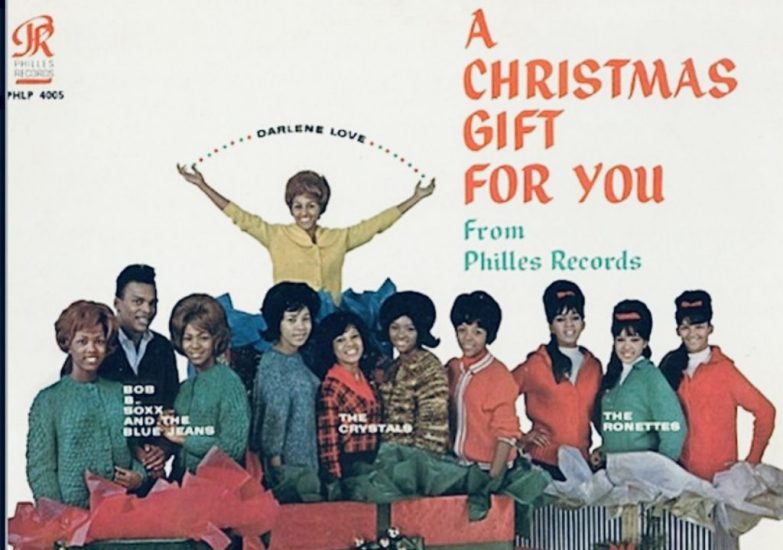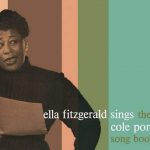‘Unparalleled Joy’: ‘A Christmas Gift For You’ at 60
For six weeks in the scorching Los Angeles summer of 1963, the members of The Ronettes, The Crystals, Bob B. Soxx & the Blue Jeans and Darlene Love were holed up around the clock at Gold Star Studios on Santa Monica Boulevard working on a Christmas album. Their 23-year-old producer and Philles record label owner Phil Spector had cots brought in so his young singers could sleep between takes. Spector’s young assistant, an aspiring musician named Sonny Bono routinely ran out for burgers and other supplies while Bono’s 17-year-old girlfriend Cherilyn Sarkisian hung out in the ladies room with her new friends Darlene Love and Ronnie Bennett. As the lead voice behind the Ronettes’ summer breakout hit “Be My Baby,” Bennett, who would celebrate her 20th birthday working in the studio that summer, used the bathroom’s tiled acoustics to further refine her trademark vibrato.
In 1963, Spector and his roster of young performers were riding high on the pop charts with a series of hits including “He’s a Rebel” and “Then He Kissed Me” by The Crystals, Darlene Love’s “Wait Til My Bobby Gets Home” and Bob B. Soxx & the Blue Jeans’ “Not Too Young to Get Married.”
And Spector was obsessed with keeping his hitting streak going.

“Phil is Jewish but for some reason he always loved Christmas,” recalled Ronnie Spector in her 1990 memoir “Be My Baby.” “Every year he would spend weeks designing his own special Christmas card. In 1963 he took that idea one step further and recorded an entire album of Christmas music with contributions from all of the acts on his Philles label. While he was recording it, Phil told everyone this Christmas album was going to be the masterpiece of his career.”
Added Love in her 1998 memoir “My Name is Love”: “Sometime in the Spring, Phil got the idea — the quake as we came to call it — to make a rock n roll Christmas album. For once, we all welcomed Phil’s slave-driving schedule. The more we did the songs, the more the whole project took on its own life, personality and history. We didn’t know we were building monuments in those days, except when it came to the Christmas album. Early on we knew this was a landmark.”
Turning 60 this holiday season, the resulting album, “A Christmas Gift For You From Philles Records” remains one of the most beloved and influential holiday albums of all time. But given a certain cruel twist of fate 60 years ago this fall, it’s nothing short of miraculous the album is remembered at all.
Until her death at age 78 in 2022, Ronnie Spector toured on the power of the Ronettes’ three seasonal selections on the project — “Frosty the Snowman,” “I Saw Mommy Kissing Santa Claus” and “Sleigh Ride.” For nearly 30 years on two different networks, Darlene Love performed “Christmas (Baby Please Come Home),” her signature song from the album annually on David Letterman’s late night talk show. Since Letterman’s 2015 retirement, Love has performed the song on ABC’s “The View” annually and continues to tour each Christmas across the country.
This year, the 17-year-old who sang backup uncredited on Love’s original “Christmas (Baby Please Come Home),” now known professionally as Cher, reunited with Love to record a duet of the iconic song for her first-ever Christmas album. The 60-year friends performed the song together in New York City at the annual Rockefeller Plaza Christmas tree lighting in November. When Cher called Love out of the blue to ask if she would perform on the album, she opened with “Hi Doll,” Love’s old nickname. Love told People magazine at first she didn’t recognize the voice on the other end until it said, “It’s Cher, bitch!” Love laughed and replied, “Ohhhhhhh hey! How you doing?”
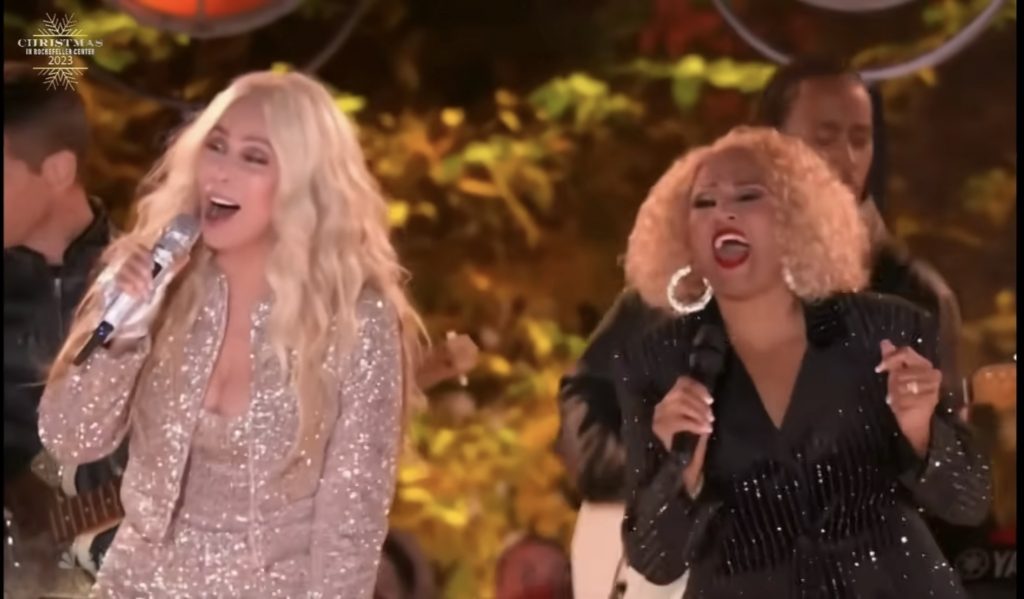
While Phil Spector (who died in prison of Covid in 2021 at age 81 after being convicted of the 2003 murder of Lana Clarkson), has deservedly been tossed into the dustbin of history, his Wall of Sound Christmas gift to the world and the artistry of the singers and musicians who brought the album to life remain eternal for music fans.
“I don’t want to sound too Hallmark Channel-like about this, but there’s something magical about this album,” says music journalist Bill Carpenter who, as a kid, first discovered an original pressing of the LP in his father’s vinyl collection. “Back then, this wasn’t what Christmas music sounded like. This was a complete departure. This was Christmas music that sounded like Motown. Take the arrangement of ‘White Christmas’ for example. It’s usually done as a ballad but Darlene Love’s version is up-tempo, there’s maracas on it. As a kid, it was intoxicating to listen to. It was fun, festive and made you want to move.”
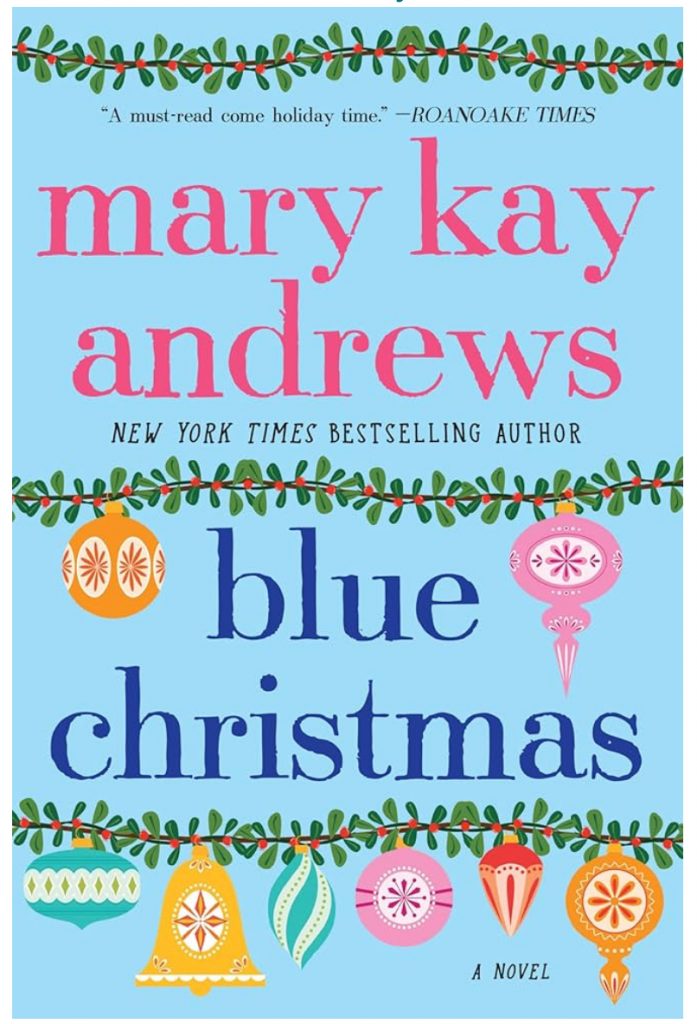
Kathy Trocheck first discovered the album as a reporter working at the Atlanta Journal-Constitution when it was reissued by Rhino Records in 1987. Knowing her fondness for oldies, a Features Department colleague slipped her a promotional copy of it. “It’s the feeling of unparalleled joy,” says Trocheck. “And of course, Darlene’s voice on ‘Christmas (Baby Please Come Home)’ is so magnificent. When you put that wall of sound to Christmas music, how can you go wrong?”
After leaving the newspaper and becoming the New York Times bestselling author Mary Kay Andrews, the writer took the album with her to Georgia’s Tybee Island in the middle of summer while working on her debut 2006 Christmas novella “Blue Christmas.” Recalls Trocheck: “The cottage I was staying in was maybe 500 square feet. I had this boom box and I would jack up the air conditioning and play the Phil Spector Christmas album to get myself in the Christmas spirit.” The strategy worked. This holiday season, Mary Kay Andrews’ latest Christmas novel, “Bright Lights Big Christmas” debuted at number nine on the NYT bestseller list.
Singer Francine Reed was 16 years old and singing with her siblings as part of the Reed Family when “A Christmas Gift For You From Philles Records” debuted in 1963. “I was a teenager at the same time Darlene Love and Ronnie Spector and the others on the album were performing those tunes.” Reed pauses for a minute to sing the refrain of The Crystals’ “He’s a Rebel” and adds, “ I thought they were cool but I never imagined I would ever be where they were. We saw these young Black women on our TVs but we weren’t thinking, ‘Oh, that could be me.’ We weren’t in that state of mind. At that time, I was singing with my family in church, singing for the Kiwanis club and at sock hops.”
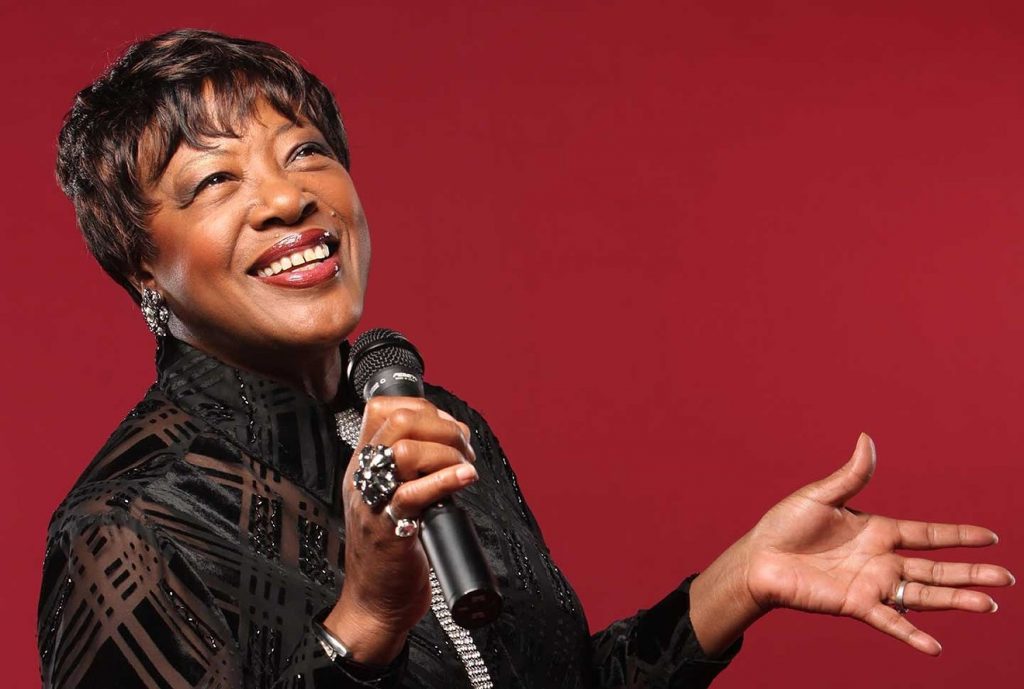
Decades later, however, Reed ended up accepting the role of the chanteuse in the popular Teatro ZinZanni “Dinner & Dreams” production in Seattle after learning who had performed in the role before her. “Darlene Love had done Teatro ZinZanni before I got there,” recalls Reed. “Let me tell you, I was very impressed with that. ” Reed said yes to the offer and ended up working for years with the production.
As beloved as “A Christmas Gift For You From Philles Records” is in 2023, working around the clock to create the album wasn’t easy. “The more we worked, the greater it all sounded,” remembered Darlene Love in her 1998 memoir “My Name is Love.” “One night it got so late that my head just dropped behind me and my big old red wig fell off! All the musicians were happy, because that finally ended the session.” Added Ronnie Spector in her 1990 memoir “Be My Baby”: “We worked on that one forever. We’d start recording early in the evening and we’d work until late into the night, sometimes even into the next morning. And everybody sang on everyone else’s songs, so all of Phil’s acts really were like one big, happy family for that one album.”
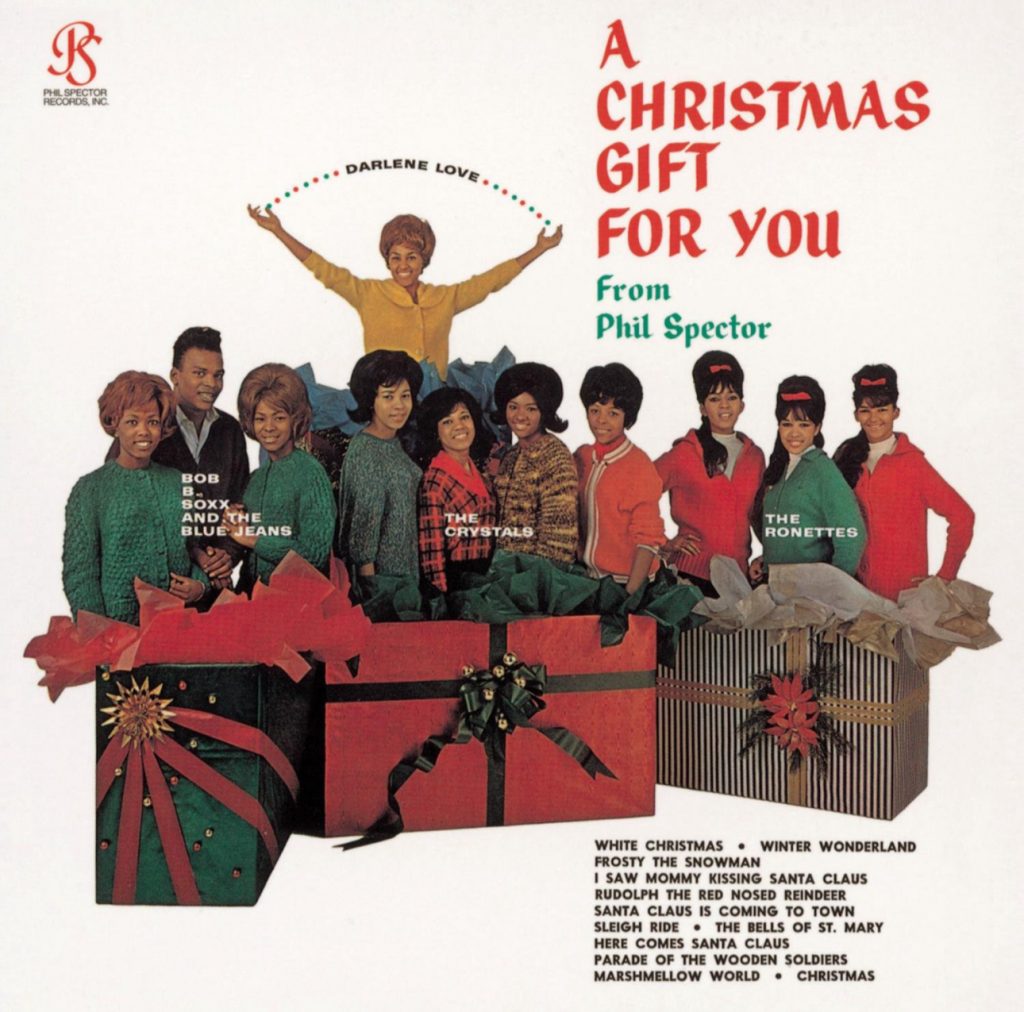
Recalled engineer Larry Levine to author Mick Brown for his 2007 book “Tearing Down the Wall of Sound: The Rise and Fall of Phil Spector”: “It got to the point where Phil and I were at each other’s throats because night after night we were in for six weeks doing that album. I never wanted to work with Phil again after that. My nerves were shattered and everyone was exhausted.” Assesses Brown of the project: “Spector poured everything into the record — sleigh bells, chimes galore, the sound of music boxes and neighing horses. Darlene Love singing ‘White Christmas,’ the Ronettes performing ‘I Saw Mommy Kissing Santa Claus’ and LaLa Brooks singing ‘Parade of the Wooden Soldiers.’ The results should have been kitsch of the highest order. But Jack Nitzsche’s gorgeous arrangements and the sheer unadulterated joy evident in all of the performances elevated the music to something quite magical — innocent and knowing at the same time: A vision of all the happy Christmases Spector had dreamed of and never known.”
As Spector himself explained to the London Evening Standard in 1964, “The records are built like a Wagnerian opera. They start simply and they end with dynamic force, meaning and purpose. It’s in the mind. I dreamed it up. It’s like art movies. I aimed to get the record industry forward a little bit, make a sound that was universal.”
“It wasn’t a sequence of songs, it was a sequence of detonations, one bigger and louder than the first. Phil should have put warnings on the shrink wrap like the kind they put on boxes of TNT: HANDLE WITH CARE — CONTAINS EXPLOSIVES.”
Darlene Love
“It was an album of traditional Christmas music done in the untraditional idiom of rock n roll,” wrote author Mark Ribowsky in his 1989 book “He’s a Rebel Phil Spector: Rock n Roll’s Legendary Producer.” “Spector and [arranger] Jack Nitzsche laid out the arrangements for 12 carols and one original song — a teary Ellie Greenwich-Jeff Barry-Phil Spector ballad ‘Christmas (Baby Please Come Home)’ — in the same manner as rock songs, with hip R&B styling, copious strings and a big band kick to the age-old hooks of pieces like ‘Frosty the Snowman’ and ‘Sleigh Ride.’ The musicians did not know what day it was, whether it was night or day outside. When it was finally completed, it was a feast of cool and mawkish, a hipster’s way of appreciating the seasonal standards that had become stale and depressing for a burgeoning generation of young adults.”
To play on the record, Spector had enlisted members of Gold Star Studios’ own Wrecking Crew — drummer Hal Blaine, pianist (and future 1970s singer-songwriter) Leon Russell, saxophonist Steve Douglas, guitarist Tommy Tedesco and bassist Ray Pohlman. The Crew routinely backed everyone from the Beach Boys, Frank Sinatra and the Mamas and Papas to the Monkees and Bob Dylan.
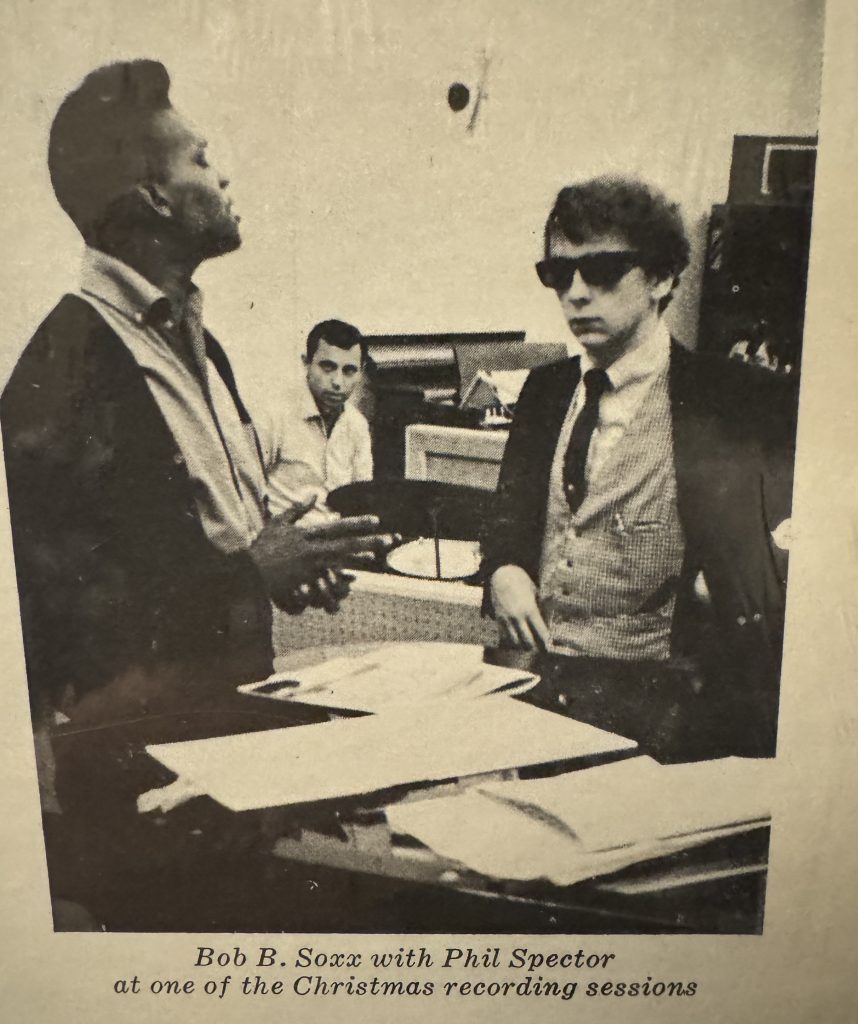
While Love and Ronnie Spector would go on to tour for decades based on the popularity of their selections on “A Christmas Gift For You,” one of Bill Carpenter’s favorite tracks on the LP is “The Bells of St. Mary’s.” On lead vocal is a young singer named Bobby Sheen, who performed on the album under the name Bob B. Soxx & the Blue Jeans (Sheen died in 2000 at age 59). “No one really ever talks about that track,” says Carpenter. “What I love about it is it sounds like an early 1960s R&B song and then these church bells come in. And in the middle, it goes into this crazy churchy call and response thing. Each year, I find myself going back and listening to it over and over. [Sheen’s] selections don’t get enough love maybe because he kind of just faded away as an artist while Darlene and Ronnie kept on.”
With “Christmas {Baby Please Come Home),” Darlene Love created a new holiday standard eventually covered by scores of other artists, including U2. But the song didn’t come easily to her, especially as an illicit romance percolated behind the scenes that summer between Spector, a married man and Ronnie Bennett, who would become his second wife. Recalled Love in her memoir: “Jeff and Ellie really delivered the goods with ‘Christmas (Baby Please Come Home),’ proving once again that the best Christmas songs, like the best love songs, are about loss. The song was so good that I just assumed it would go to Ronnie. But poor Ronnie didn’t have enough circuits to handle the high-wattage performance Phil wanted and so he gave ‘Christmas (Baby Please Come Home)’ to me. And it turned out to be the record I’d been waiting to make with Phil in the year I’d known him. The song was even more powerful than ‘He’s a Rebel’ and this time it would have my name on it.”
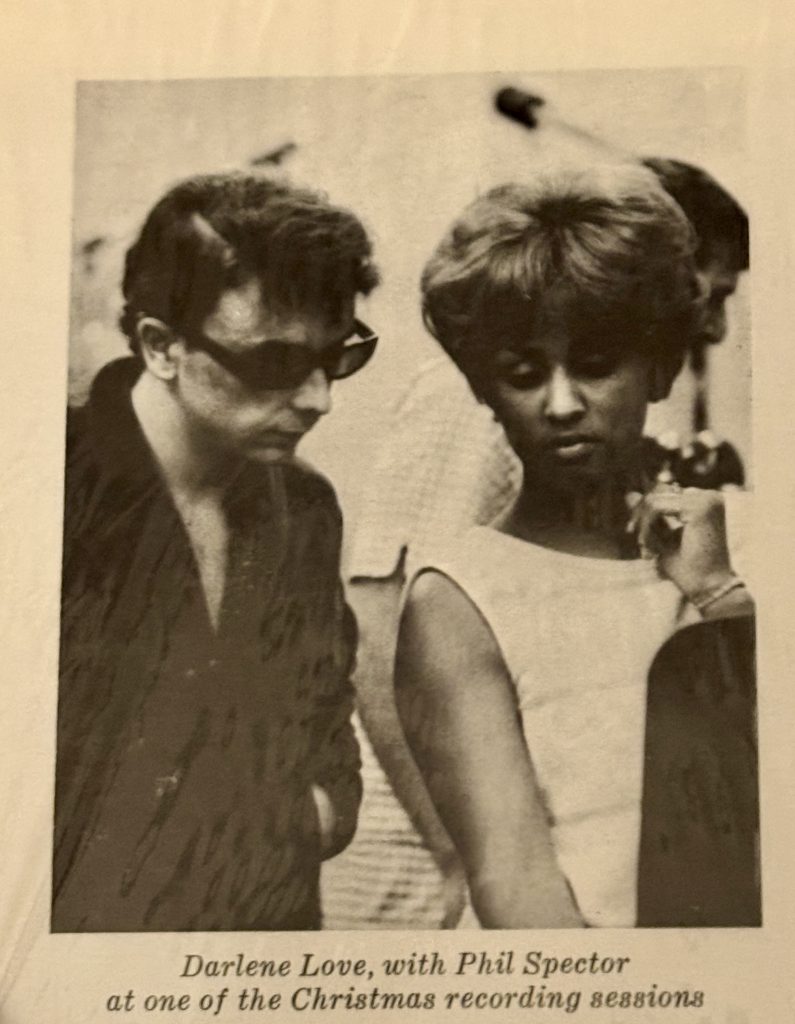
Says Bill Carpenter, the author of “Uncloudy Days: The Gospel Music Encyclopedia”: “Darlene and her sister [Honeycomb singer Edna Wright] were both straight out of church. Darlene had this deep smoky rich alto. At the time, it was in complete contrast to Diana Ross’s voice. Darlene was taking you to church, whether she’s singing about how she can’t wait until her boyfriend gets home or baby, why don’t you please come home for Christmas. It’s all in the delivery. A lot of people have covered these songs over the years, but nobody does them like Darlene.”
“Recording ‘Christmas (Baby Please Come Home)’ nearly killed all of us,” remembers Love in “My Name is Love.” “Leon Russell was on the piano, and by the last takes, he was playing so hard it was almost like a concerto. He played himself right off the bench and onto the floor and kept on playing. Cher was on background and has this to say: ‘Darlene started to sing and the hair stood up all over my body. It was a performance that made time stop. When she finished, [Bob B. Soxx and the Blue Jeans and Blossoms member] Fanita [James] fell over with both hands in the air.’”
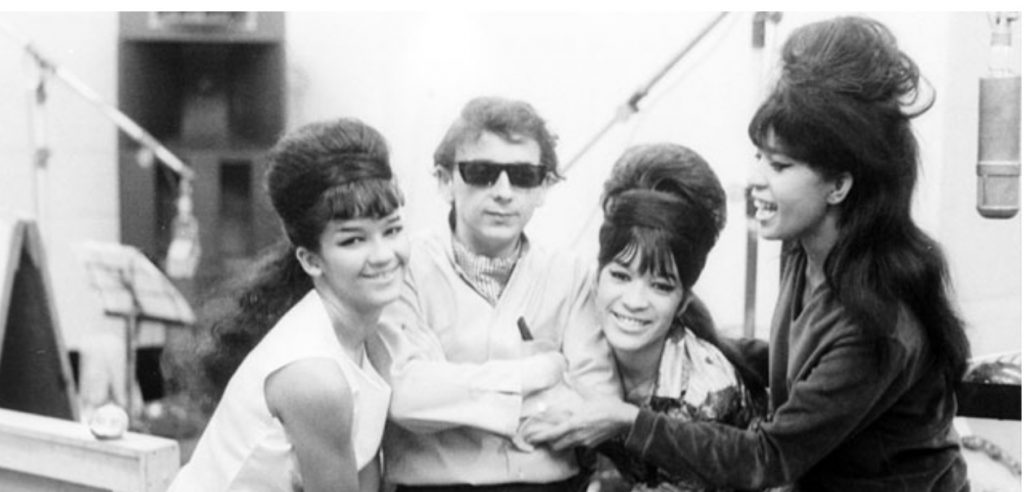
Francine Reed knows exactly how Love managed to muster the lung power necessary to successfully nail the notes in the legendary tune too: “Just like Darlene Love, for my brothers and sisters and myself, the church was our first stage. You had to have a strong voice and build up that strength because we didn’t have microphones. That’s where those voices came from. You had to sing from the top of your voice, three or four days a week at practice and then at the services. You had to sing from your diaphragm, too because you had those people yelling, ‘Sing a little louder, baby!’ out there in those pews. It was, ‘We can’t hear you, baby. Sing!’”
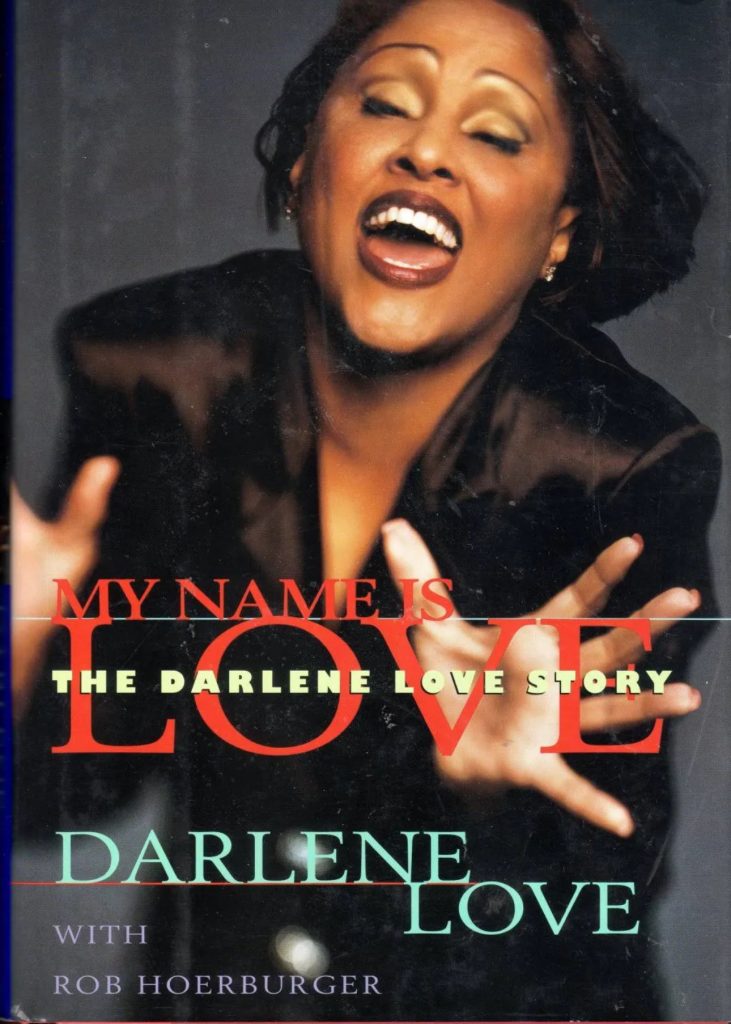
Of the finished album, Love reflects in her memoir: “It wasn’t a sequence of songs, it was a sequence of detonations, one bigger and louder than the first. Phil should have put warnings on the shrink wrap like the kind they put on boxes of TNT: HANDLE WITH CARE — CONTAINS EXPLOSIVES.”
By late September with “A Christmas Gift For You” finally in the can, Phil Spector didn’t have a lot of time to get his holiday masterpiece pressed up and in stores. Recalled Love: “The cover pictured all of us [The Crystals, The Ronettes, Bob B. Soxx & the Blue Jeans and Love herself in canary yellow at the top, popping out of life-sized gift boxes] against a white blanket background and it marked the first time any of us would ever appear on a real album.”
The rock n roll Christmas masterpiece finally hit stores on Friday, November 22, 1963. The Ronettes were on tour and happened to be in Dallas that day. “We heard [President John F. Kennedy] was coming so we stayed to see him,” remembered Ronettes member Nedra Talley in “Tearing Down the Wall of Sound.” “We were looking out of the window waiting and the TV was on in the room and all of a sudden he was shot. We were completely blown out of the water.”
As the owner of Philles Records, Spector immediately had his prized LP yanked from stores. Recalled Ronnie: “People were too depressed to even look at a rock n roll record.” Added Love in her memoir: “With a shade being drawn over the country’s mood, the album suddenly seemed so … inappropriate. Its amplified holiday cheer would have been a bit like wearing bright red dress to a funeral. We all understood Phil’s decision, of course. We wondered if Phil would ever put it out again. We had all worked so hard on this baby and were so proud of it, it almost became like a child to us, one we lost on the way to the delivery room.”
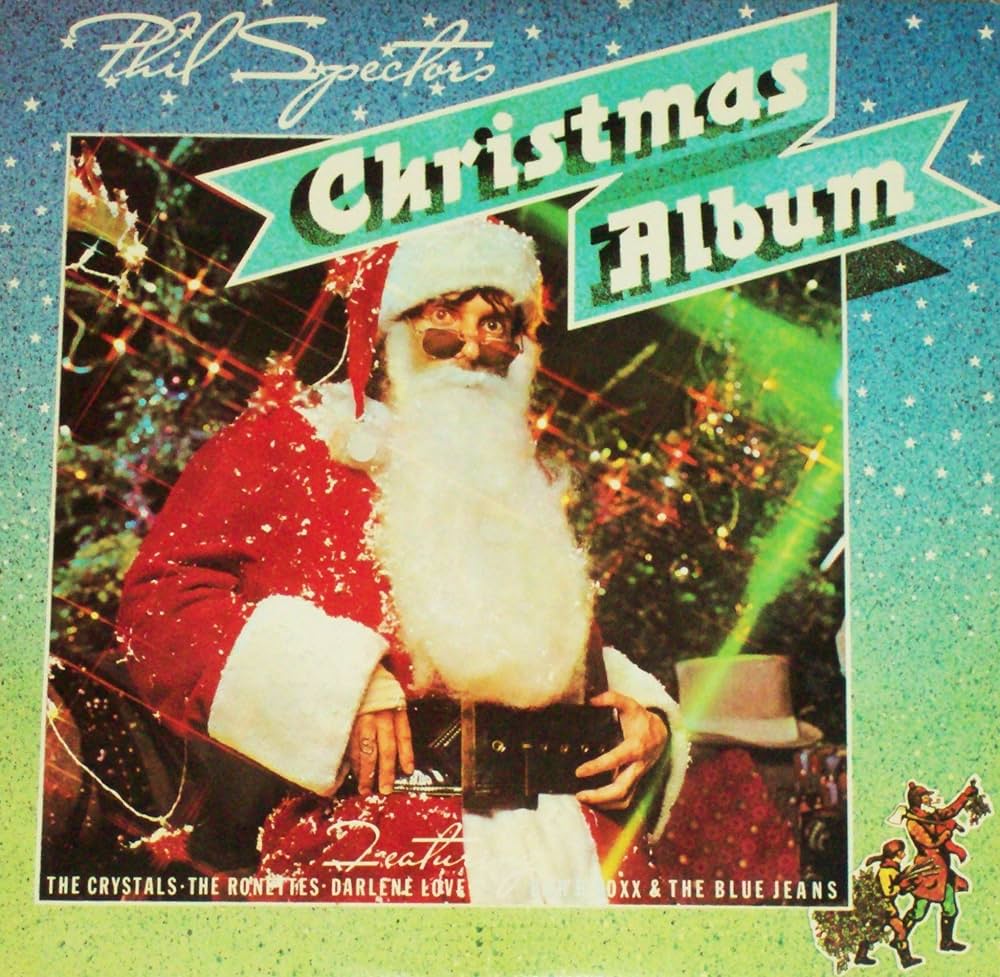
In 1972, Spector indeed reissued the album with the title “Phil Spector’s Christmas Album” with himself dressed up as St. Nick in shades on the cover. In 1983, a UK pressing was sold in the US as a popular import and in 1987, Rhino issued the album with its original artwork and title on CD for the first time “in glorious mono!” as the ad copy read. In 2023, the album is available to stream on Spotify and in our current vinyl resurgence, Sony Legacy has even reissued the album on vinyl once again, along with a picture disc edition.
Marveled Ronnie Spector in 1990: “Nowadays people talk about it like it’s one of the greatest albums in rock n roll history!”
Andre Darlington, the author of “A Booze & Vinyl Christmas,” even created two cocktails in the 1963 album’s honor for his new 2023 holiday book. “I kept running into the album while researching this book,” says Darlington. “I didn’t discover it until I was in college, crate digging in a record shop. In a way, it’s a lost masterpiece because it’s so influential.” Darlington says the album’s first direct influence was on Beach Boy Brian Wilson who came up with “The Beach Boys Christmas Album” the following year. “It was a direct response to Phil’s album the previous year,” explains Darlington. “It was Brian saying, we need to do something even more spectacular.”

To Bill Carpenter’s ears, he hears the influences of “A Christmas Gift For You” in everything from Sia’s 2017 “Everyday is Christmas,’ Kelly Clarkson’s multiple holiday offerings and of course, the current reigning Queen of Christmas herself Mariah Carey’s “All I Want for Christmas is You.” Says the journalist: “It seems like on any modern Christmas album, you have to have a track that sounds like that Spector record, a flashback to ‘60s.”
So why is it 60 years on, “A Christmas Gift For You From Philles Records” remains so beloved? Laughs Kathy Trocheck: It’s a cheese fest and let’s face it, the holidays are all about cheese. But I love that Ronnie and Darlene eventually got the credit they deserved and I’m glad that Darlene is still out there with that incredible instrument she has. Since all of her ‘Letterman’ performances of ‘Christmas (Baby Please Come Home)’ are on YouTube, sometimes even now, I’ll sit in my living room, sip cheap chardonnay, fire up one of those performances and enjoy my holiday time with Darlene.”
Adds Andre Darlington: “It’s one of those albums that sits you down in your chair. There’s so much going on, it’s so symphonic. It’s a record that demands your attention. You have to sit down, face the stereo and just listen to it.”
Reflects Francine Reed: “As the years have gone on, people remember these songs and want to hear them again. I think these songs remain popular because they remind you of when you were that age. We get older but the music doesn’t.”
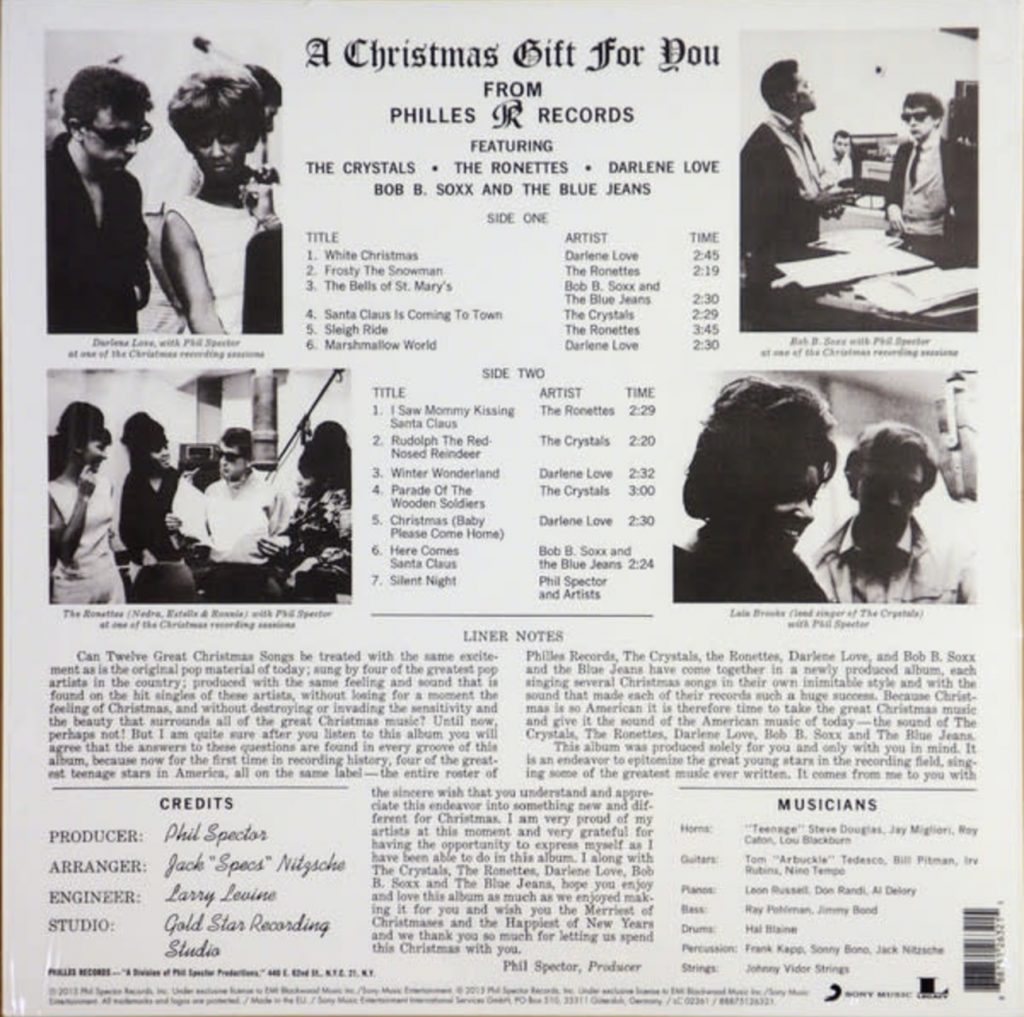
And while the man who produced “A Christmas Gift For You” died in prison a convicted murderer, Bill Carpenter says the album’s legacy now far overshadows the specter of Phil Spector. “When you hear Ronnie’s voice, you immediately know it’s Ronnie Spector. It’s the same thing with Darlene Love. Those voices are what made the songs on the album iconic. Phil Spector’s character may shape the way some people look at him but it doesn’t take away from what this album is, the voices on it and the way this record makes people feel. That remains, regardless.”

Richard L. Eldredge is the founder and editor in chief of Eldredge ATL. As a reporter for the Atlanta Journal-Constitution and Atlanta magazine, he has covered Atlanta since 1990.

